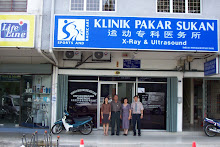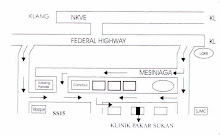Slipped disc, disc degeneration, osteoarthritis of the neck joint and nerve injuries are interrelated to each other. Many golfers who have neck and arm pain due to a pre-existing neck injury that is aggravated by active golfing.
Disc injury are divided into two main groups of acute disc prolapsed and degenerative disc disease. Majority of disc or nerve injury is more likely to recur and often takes months to settle or never fully recovered.
Symptoms of disc and nerve injury are:
- Numbness.
- Shooting pain to the arm, neck, shoulder, upper back and arm.
- Deep ache.
- Weakness in arm and shoulder.
- Tingling, burning and pin & needle sensation in the neck, upper back and arm.
- Muscles cramp and spasm.
- Pulling sensation in neck and arm.
- Muscles wasting.
- Injury from fall and swing.
- Overuse.
- Old age.
- Too much, too fast and too quickly in golf.
- Wrong technique.
Causes of pinched nerve:
- Disc prolapsed or slipped disc.
- Degeneration or osteoarthritis of cervical spine.
- Degenerated disc.
- Osteoarthritis of facet joint.
The twisting stresses of the golf swing can place considerable stress on the neck, the disc, ligaments and muscles. And knowing the types of strain sports place on the neck, helps prevent aggravating a neck injury. Some golfers also participate in other sports as part of cross training to maintain fitness and health; like running, swimming and gym workouts.
Factors that increase the risk of injury
- Time spent playing. The more often and longer hours of play, the higher the risk of injury.
- Incorrect technique. Examples of this are a poor swing style and hitting the ground instead of the ball.
- Failure to warm up and cool down.
- Previous neck injury - golf can aggravate existing injuries.
- Degenerative disc and spondylitis (osteoarthritis) of neck.
Treatment of nerve injury
- Rest. It is generally not advisable to further irritate the nerves by continuing to play with pain. Taking time off shortly from golf up to three months allow the nerve and disc to heal.
- Apply ice to the neck for 15 minutes one to two times a day while the neck and arm pain is there.
- Medication like anti-inflammatory drugs that can help decrease inflammation, swelling and pain. Consult your doctor before self-medication.
- Neck stretching exercises to relax the tight and stiff muscles.
- Neck strengthening exercise after initial sevre pain has settle.
- Alternative low impact exercise while waiting to return to golf to maintain your fitness. Return to slow walking or cycling for 30 minutes every other day after the neck pain has recovered.
- Consult your doctor early.
Simple neck injury prevention tips
- Golf lessons for beginners.
- Correct swing technique.
- Neck and back flexibility through stretching before and after golf.
- Slow and gradually increase in your golf game or driving range.
- Avoid too many games.
- Proper warm-up and cool down.
- Consider using a buggy to transport your clubs, or carry clubs using a supportive carry brace.
- Avoid too many balls and daily at driving range.




This is very educational content and written well for a change. It's nice to see that some people still understand how to write a quality post.! regenerative orthopedics
ReplyDelete